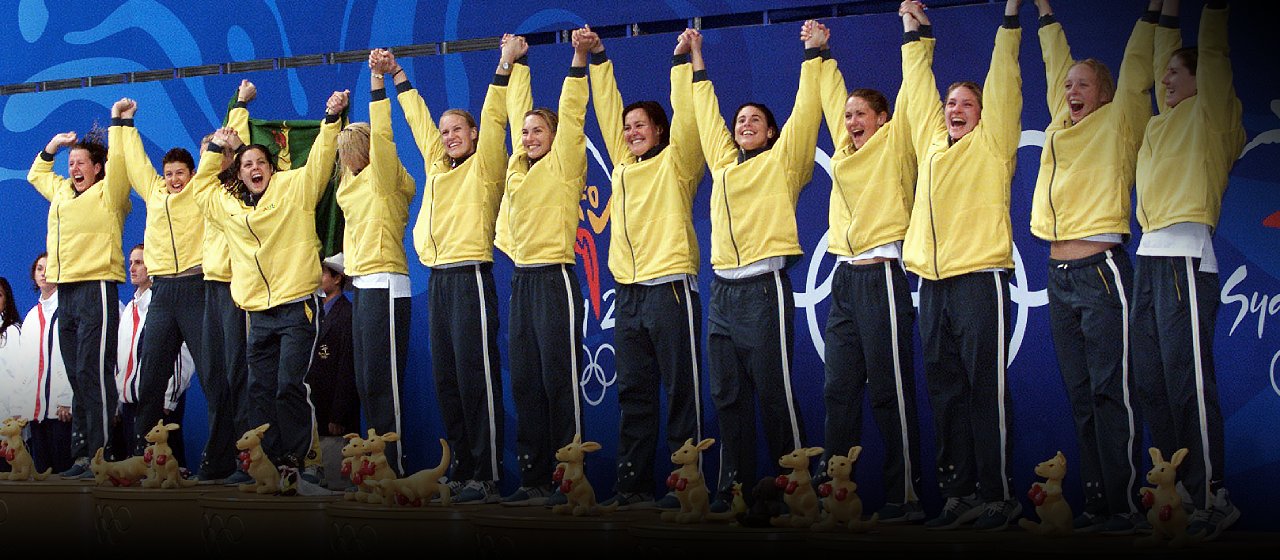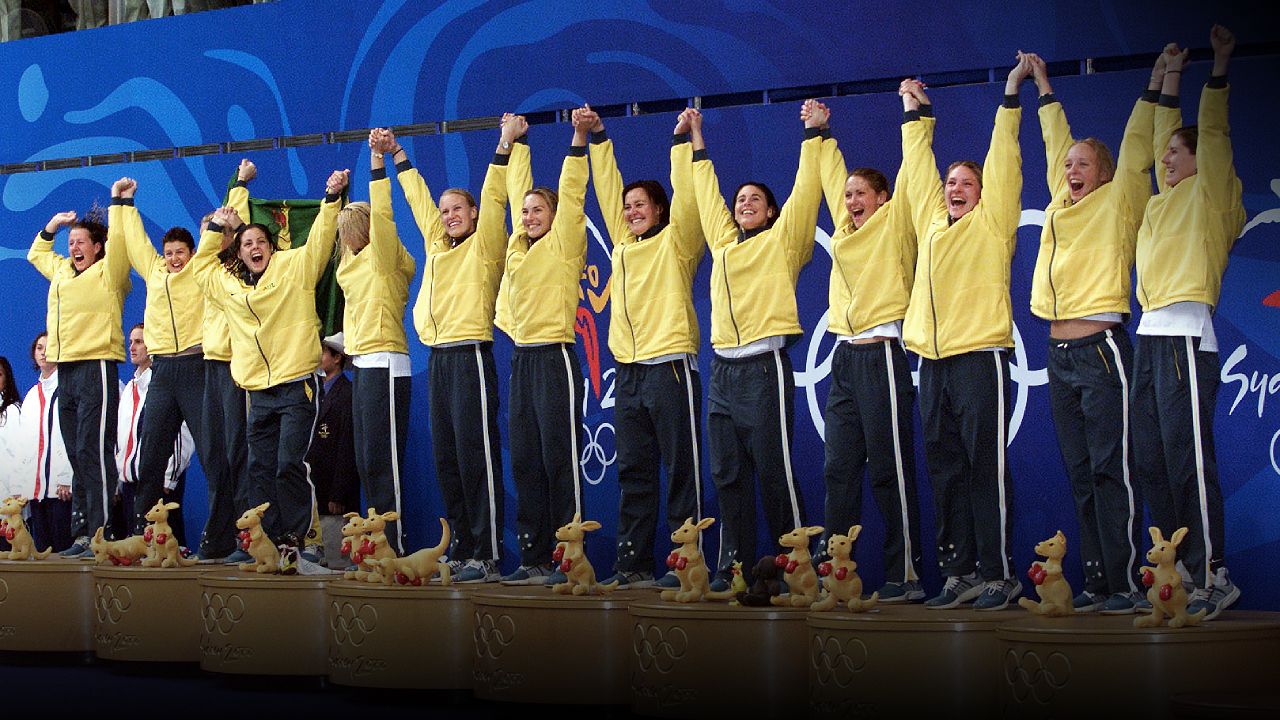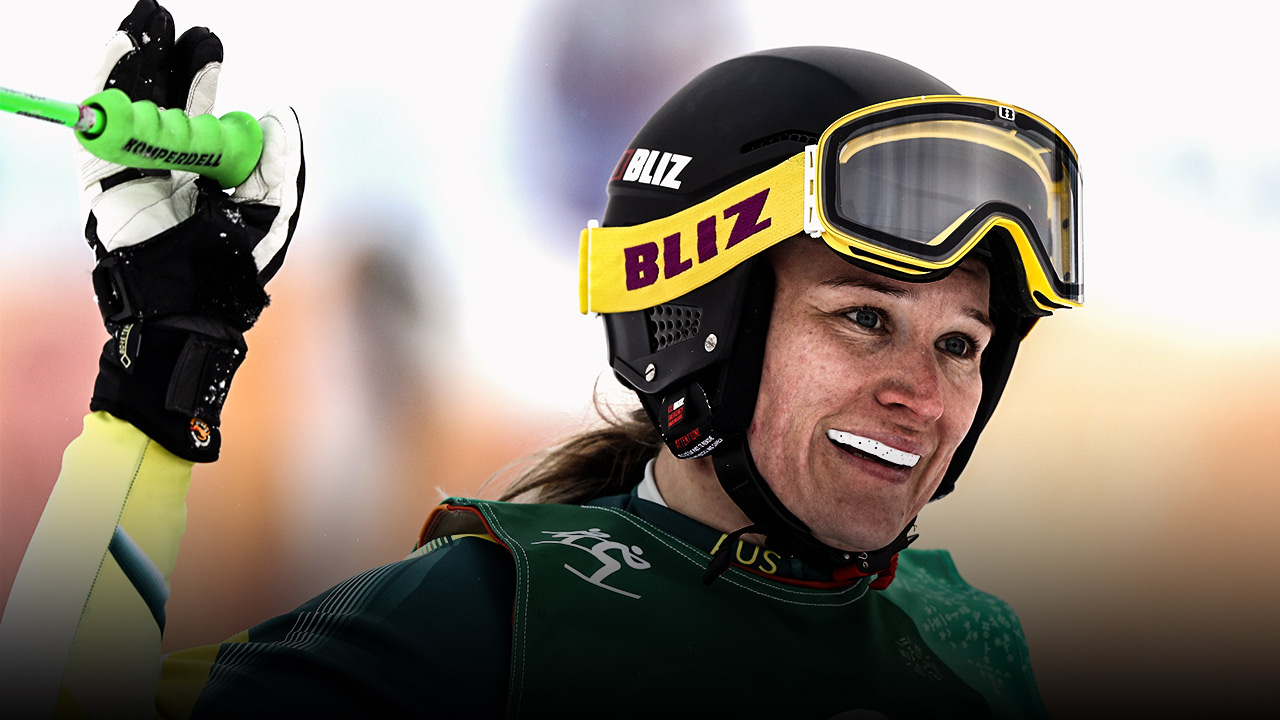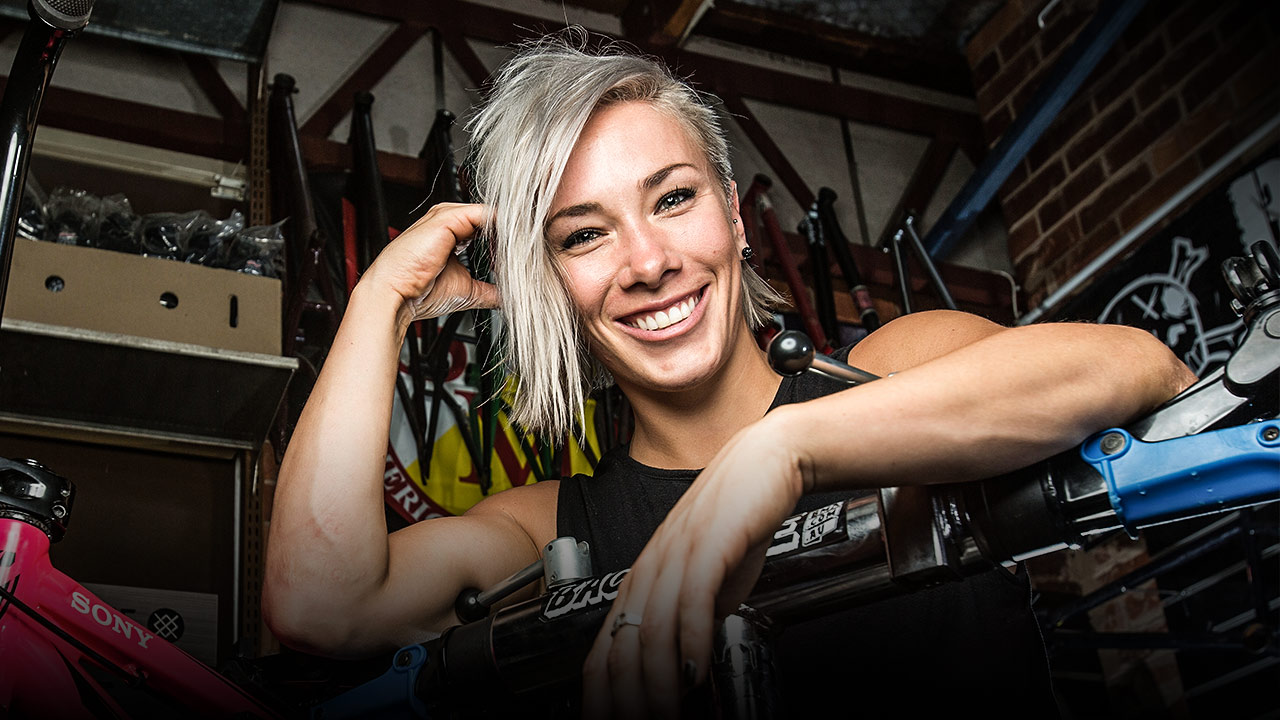AIS
From winning gold to supporting our next Olympians
Competing in the first-ever Olympic competition for a sport brings pressure.
Women’s water polo had never been played at the Olympics before Sydney 2000 – even though there had been a men’s tournament at every single Summer Games but the first.
Heading into Sydney as part of the Australian team, we felt we were competing not just for ourselves, but also for all the supporters of the sport and for all the women who hadn’t had the opportunity to go to a Games before us.
There had been so much work done by a lot of women’s water polo advocates for years and years, so there was a little bit of an ‘it’s about time’ feeling, too.
Four sports were going to be making their Olympic debuts this year in Tokyo, only for them to be pushed back a year. How those athletes are dealing with that delay will depend on what stage of their career it’s come at – the earlier, the better.
If I had to wait from 2000 to 2001 to compete, it would have been disappointing, but it wouldn’t have made too much of a difference. Particularly in the current climate of what’s going on with COVID-19, I would just have been grateful the opportunity was still coming in 12 months’ time, rather than being taken away all together. Waiting an extra year for my second and final Games would have been harder, though.
We were competing not just for ourselves, but also for all the supporters of the sport and for all the women who hadn’t had the opportunity to go to a Games before us.
Athletes today will probably say, “we’ve been waiting for a while now anyway, another year isn’t going to hurt.” Having to wait even longer might make it even more special when the chance finally does arrive.
Talking to a few athletes – not necessarily in those new sports, but still ones who had qualified or were likely to qualify for Tokyo – they just want to compete. If they have to wait another year, they understand why. That’s just the way it is. They’ll refocus their goals, shift them 12 months back, and be grateful for the opportunity to go to the Olympics in 2021.
The winning feeling
The 2000 Olympics being at home was a double-edged sword. There was support, but so much scrutiny on athletes and so much media coverage that it created extra pressure.
The media had portrayed us as almost unbackable favourites, which wasn’t actually the case – there were around four teams who could have won.
So when we did win the gold medal match, it was a feeling of joy, and also of disbelief. But it was also really rushed. We won in the last second-and-a-half of the game, and there was a huge amount of confusion and emotion – and complaining by the American team. And then we got word that the medal presentation was going to air soon.
“We’re going to an ad, and the medal presentation’s happening pretty much straight after that,” we were told.
“You need to get your ceremony suit on and get out there.”
In the changerooms with the rest of the team, everyone was just scurrying around, madly trying to put on the medal tracksuit, and rushing out to actually get presented.
The other clear memory is standing on that dais. It seemed every single person in the crowd stayed and sung the anthem together. I remember taking that in and enjoying it for not just myself, but also for women’s water polo.

Into regular life
No matter what sport you play, it’s important to have something else, a secondary focus to help clear your head, whether it’s by studying, working, or volunteering in the community on a regular basis, it clears your head from the daily regime of training, training, training.
I either always worked or I always studied. When I knew I was going to retire after the 2004 Athens Olympics, that balance was particularly helpful in being ready for post-career work. I was one of those athletes that thought “I’m going from A to B, and I’ve got a plan of how I’m getting there and I’m not deviating from that plan”. That applied to study, work and sport. By nature, a lot of athletes are quite regimented like that.
After retiring, there was some parts of regular life that I loved. Being able to book tickets to a show in two or three months and knowing that I’d be in the city to attend it, not being tired all the time, and going to movies and hanging out with your mates.
It is a more normal life, though. It’s different to what you’re used to. I missed feeling unbelievably fit – although not the more than 25 hours a week it took to achieve that. My first winter in Brisbane, coming home on the train from eight hours at work when it was dark at 5:00 or 5:30, it took time to get used to that. Even though that transition went well – it couldn’t have gone any better – it still took some time to acclimatise. It was still hard.
Supporting the next generation
Not many athletes benefit from concentrating solely on sport and nothing else. It’s too much of a focus on the one thing.
The work I do now is all around supporting elite athletes that are studying at Griffith Uni to successfully finish their degree while competing at a high level.
It involves helping them logistically balance what they are doing, but also talking to them a little bit about what it’s like, when there are opportunities to concentrate on sport, when there are opportunities to concentrate on study, and why those things are important.
Some people are really exceptional at what they do and they don’t really need a lot of help, whereas other people really actively seek assistance.
To see them develop both academically and on the sporting field, through to Olympics and Paralympics and the professional levels, is rewarding.
Take Matt Denny, for example. When I first started working with him, he wasn’t too close to qualifying for the Olympics. After a lot of work around study in his qualification route in 2016, following him closely as he tried to throw a qualifier, he was able to make it and compete in Rio.
Not many athletes benefit from concentrating solely on sport and nothing else.
He’s somebody who’s been great to watch develop, and there are quite a few others, too. I’m certainly not thinking that I’m a huge part in what they’re doing, but the support is definitely assisting them greatly.
That assistance has developed over the last little while to the point it has an important role to play in elite sport. The AIS have concentrated on ensuring athlete wellbeing remains holistic, focused on study, career and a range of other factors. There was always some backing in that space, but there’s now a real recognition of how important it is for athletes to have the support to continue on in different areas.
More about: AIS | naomi mccarthy | Olympic Games | Water Polo






 Load More
Load More